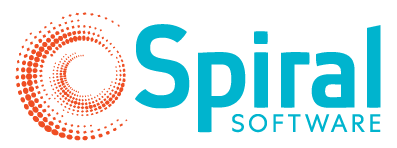Compliance: How does this impact human-centred trials?
In the world of big data, AI, and analytics— human interaction with technology and the ethics that surround it have become more critical than ever.
The ever-evolving landscape of healthcare and research is no exception to this. With technology advancing at a rate never seen before in our lifetime, we’re now witnessing an increased demand for ethical governance where data, compliance, and human-centred trials collide.
Spiral Software, at the forefront of clinical trial design, recognises the critical importance of addressing these ethical considerations and how they impact not only the work that we do but also its effect upon our clients and their patients.
AI and its effect on the world of clinical trials
The use of AI in clinical trials has the potential to revolutionise the clinical trial space. It has the ability to streamline the drug development and treatment process by increasing efficiency, improving patient recruitment and retention, enabling more accurate data analysis, and assisting researchers in making better decisions.
But as it is with any technological development, its benefits are always measured against its potential drawbacks. In the world of AI, particularly when applied to the medical sector where private patient data is being handled, there are some serious and legitimate concerns.
Privacy and security, informed consent, bias and fairness are just a few challenges surrounding patient data, eligibility and the way they can access certain healthcare services. On the other side of things, accountability and transparency, data quality and equitable access will impact risk assessment, research governance and ethics review committees overall, meaning required changes overall to trial design, management and integrity.
Addressing these issues has required collaboration among policymakers, healthcare professionals and technology developers to evolve and implement guidelines and regulations that prioritise the responsible and ethical use of AI in healthcare. For Spiral and our current and future trials, this has meant compliance with the EMA Guidelines and ISO 27001.
Compliance can be a challenging space to work within. But with every obstacle therein lies a solution; one that we are committed to implementing in Spinnaker with our agility and bespoke processes
“Compliance can be a challenging space to work within. But with every obstacle therein lies a solution; one that we are committed to implementing in Spinnaker with our agility and bespoke proccesses”
-Audrey Shearer, Founder and CEO, Spiral
Adhering to international compliance practices
The EMA Guidelines is a document providing guidance on the scientific or regulatory aspects of the development of medicines and applications for marketing authorisation. Although guidelines are not legally binding, applicants need to provide justification for any deviations. Adhering to EMA guidelines ensures regulatory compliance and market access within the European Union, opening up opportunities for business growth.
ISO 27001 is the leading international standard focused on information security. It was developed to help organisations, of any size or industry, to protect their information systematically and cost-effectively, through the adoption of an Information Security Management System. Following ISO 27001 standards demonstrates a commitment to data security and builds trust with clients and participants.
Within the industry, Spiral has seen a huge big push from within the EU to adhere to this standard of practice. Any project we are working on where participants will be enrolled from the EU needs to have the level of privacy and compliance being requested from countries within the EU.
This means that one of our biggest challenges is projects based in Australia where EU participants are added later (for example, once the trial has been enrolling participants in AU the EU become interested and then the whole EU compliance becomes important.)
We believe this level of compliance will become a requirement for any global trial. As such, Spiral is committed to implementing the EMA Guidelines and ISO 27001 so that all our trials are compliance-ready from the very beginning.
What this means for Spiral and our software
In our realm of high-trust collaboration, compliance serves as the foundation that formalises this environment, ensuring that participants in clinical trials can rest assured their privacy is protected. From strengthening security measures to refining processes and documentation, the main focus of compliance revolves around upholding patient privacy.
One notable evolution in study design within this landscape involves a significant shift in the consent process. Previously, information about individuals would be gathered during screening, followed by a request for consent upon enrolment. Contemporary trial designs, however, have embraced a more proactive approach, seeking consent prior to the screening phase.
As a bespoke platform, our adaptation to this transformative shift is seamless, requiring only minor adjustments to align with the innovative design. This demonstrates our commitment to staying at the forefront of compliance in clinical trials, where the goal remains ensuring the integrity of the trial process while prioritising participant privacy.
Our commitment to the future of compliance
For Spiral, adapting our trials and procedures to align with the EMA Guidelines and ISO 27001 isn't merely a box-ticking exercise. It undoubtedly comes with significant advantages, such as better market access, improved product quality, reduced risk, increased client trust, and a solid foundation for sustainable, global business growth. While these benefits are advantageous, they are not our sole drivers.
The evolving world of compliance requirements is still in its infancy; it is nuanced, complex, and filled with grey areas. Despite this, we are bound by both our own and our sector's ethics and morals. We want to be on the right side when it comes to ethical practice so that we can continue to be proud of what we do. With each trial, we strive to keep humans and their interests at the heart of our work, ensuring that our commitment goes beyond the tangible advantages and aligns with our core values of human-centred, responsible innovation.

